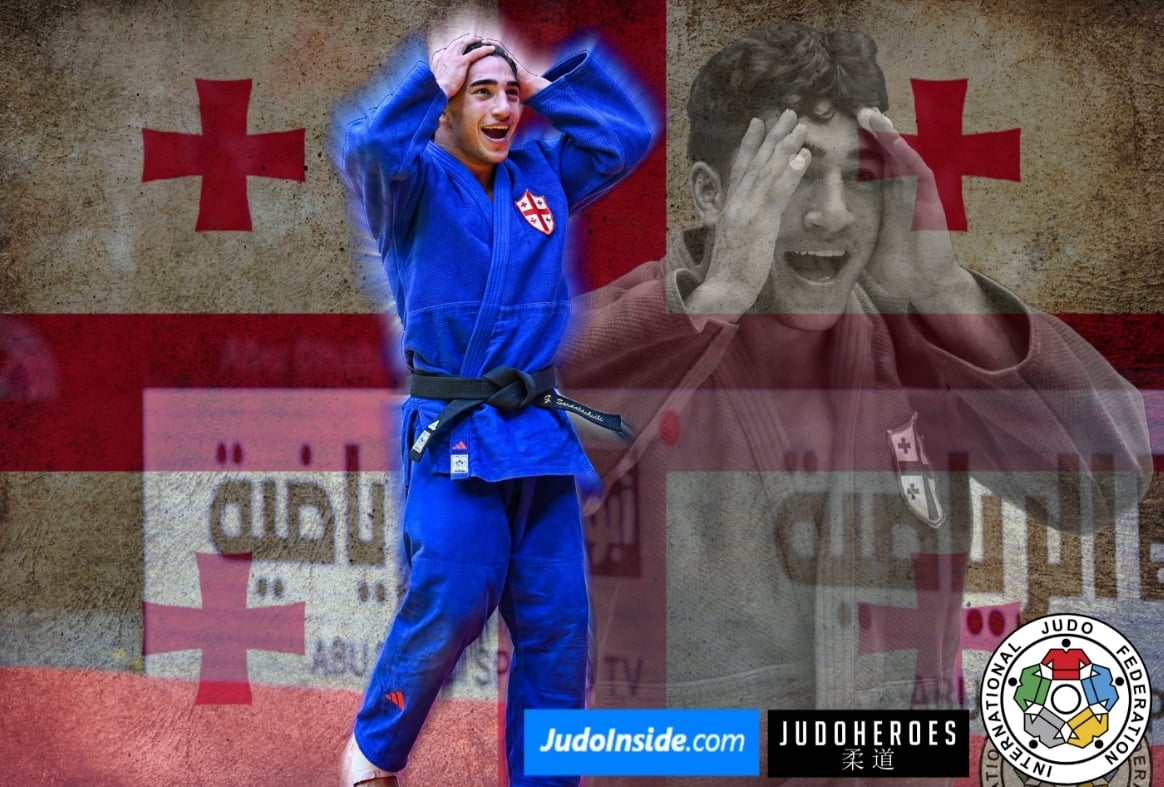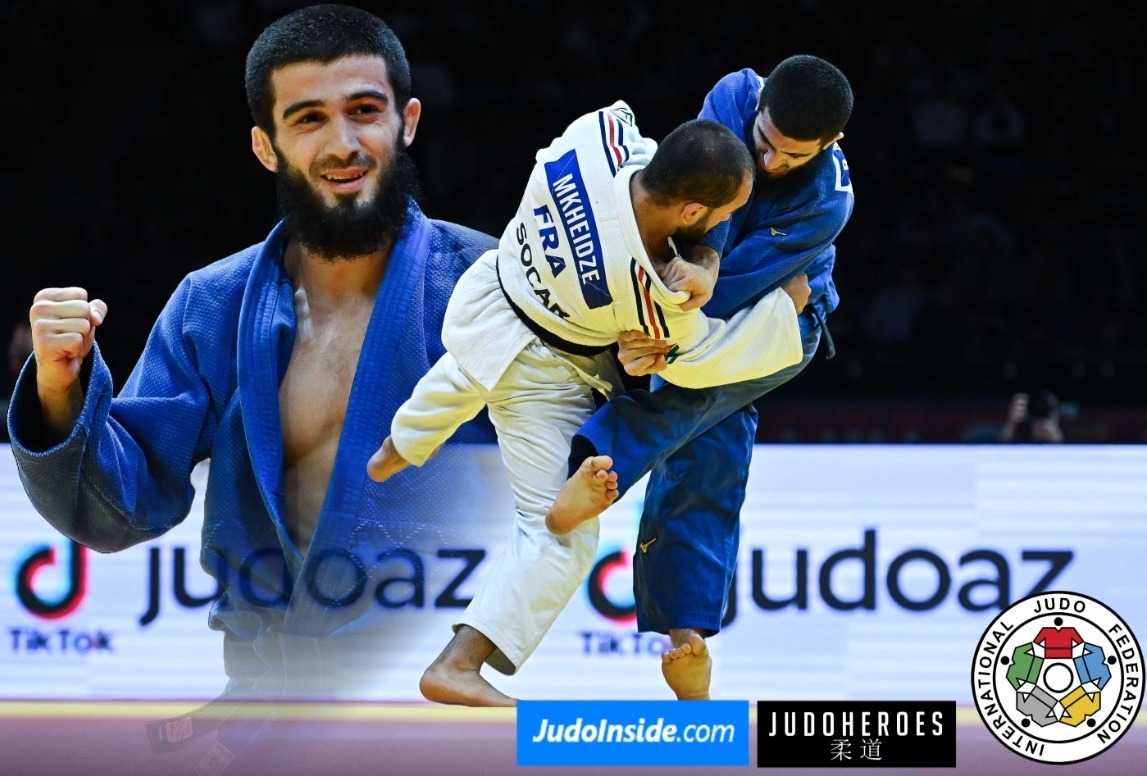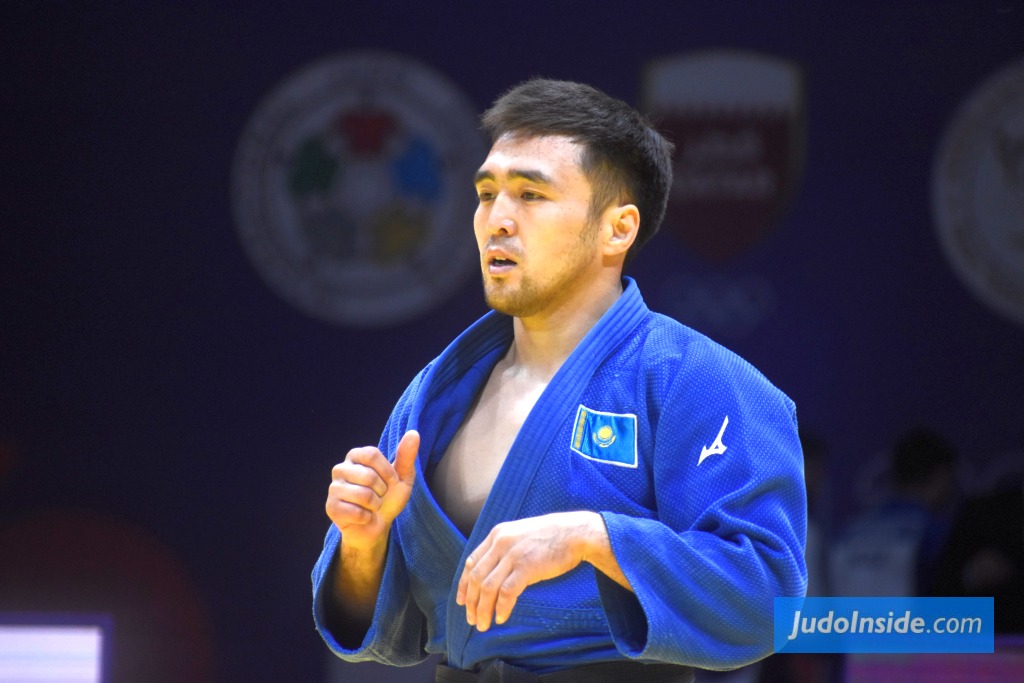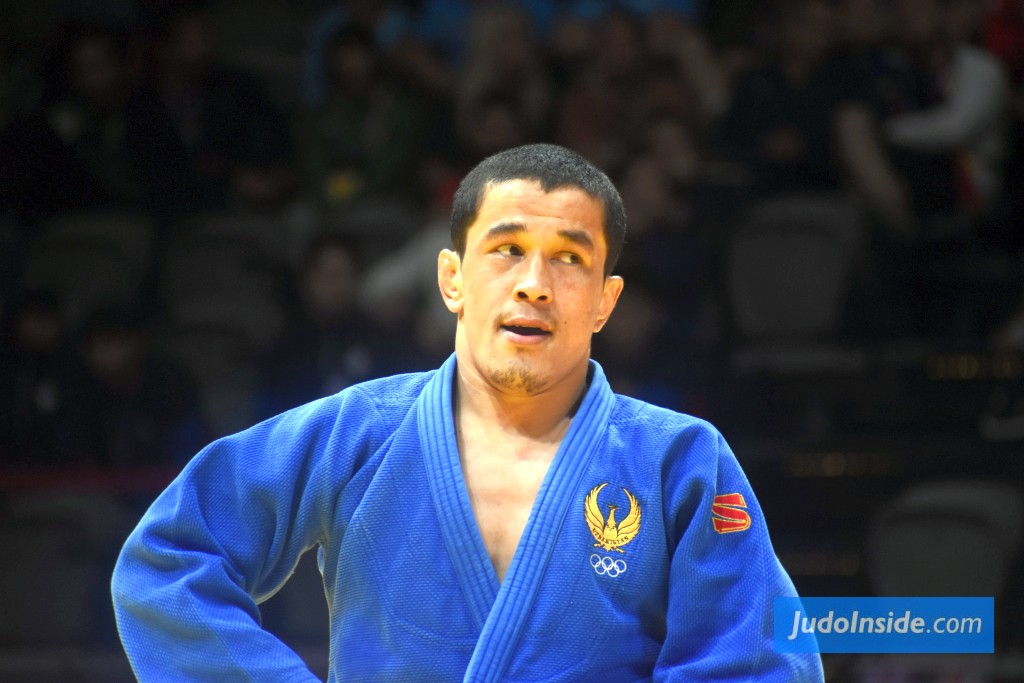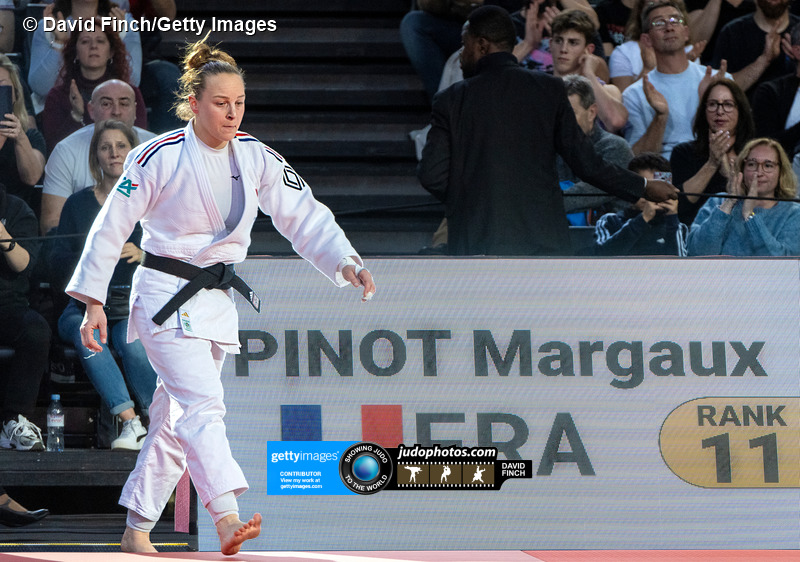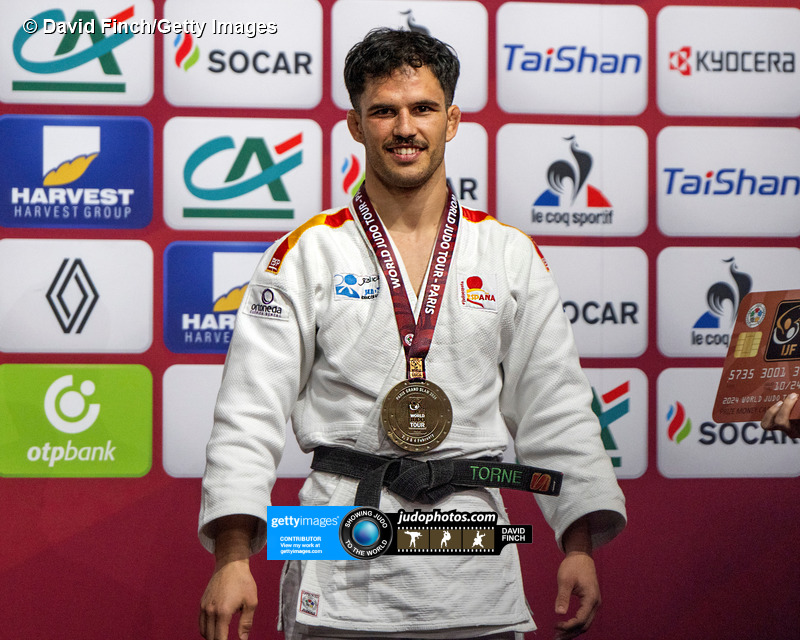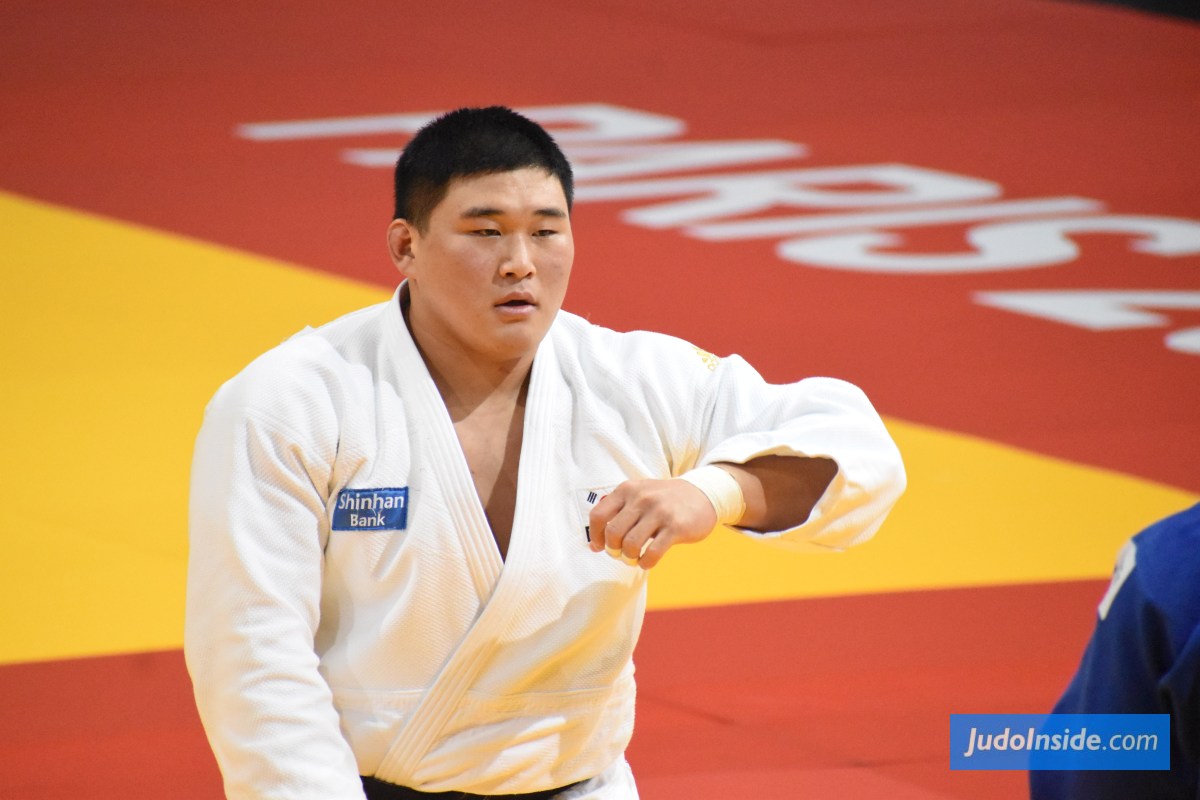Naohisa Takato belongs to the big boys in Japanese judo history
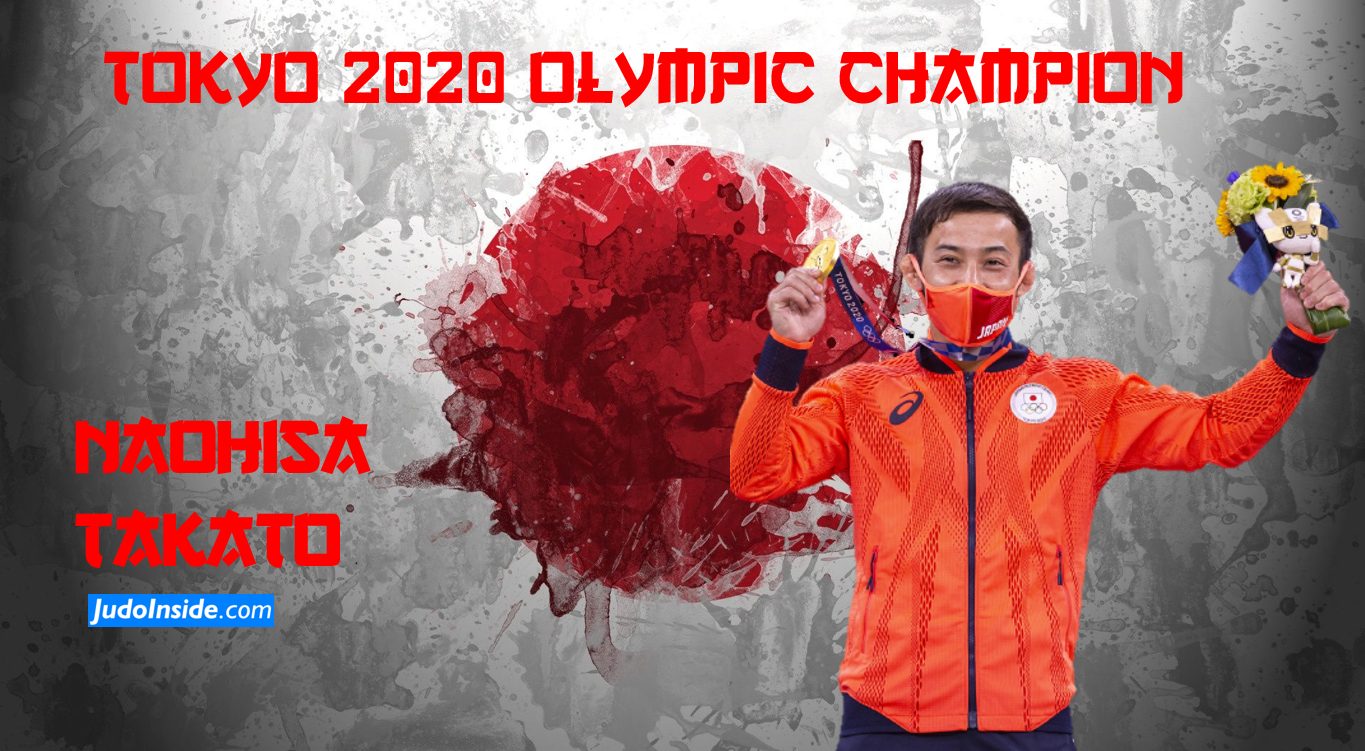
 24 Jul 2021 17:00
24 Jul 2021 17:00
 IJF Media Department and JudoInside
IJF Media Department and JudoInside
 JudoInside.com - Hans van Essen / judo news, results and photos
JudoInside.com - Hans van Essen / judo news, results and photos
Japanese judo star Naohisa Takato had a clear goal, to open the account of Japanese gold medals in the judo event and so he did it by taking the gold medal for men U60kg. Takato finally has that desired gold medal after he took bronze in Rio de Janeiro in 2016. Five years later in the Budokan he took revanche on that performances and now belongs the great on earth. He defeated the surprise of the day, Taipeh judoka Wang Yung Wei who stunned the opposition and kept Takato busy for a long time in the golden score.
More than seven minutes without a score in the final by the Japanese but three penalties for sensation Wang. The final was not the most exciting match but it had some action, engagement and desire to not give anything away.
Naohisa Takato said, "Contrary to what people might think, my hardest contest was not the final, not even the semi-final. It was the quarter final because in Rio I lost in that round and here in Tokyo I was very afraid before the fight against the Georgian."
Yung Wei Yang explained, "When I woke up this morning I felt that I would reach the final. I’m serious and I know this is not a dream. It is real and I feel great."
Bronze Medal Contests
Tornike Tsjakadoea (NED) will have some regrets because he had a really good day at the Budokan and was very close to stepping on the medal podium. In front of him was an Olympic silver medallist who has the experience at this level of competition. In the golden score period, the Kazakh scored a waza-ari to add a second Olympic medal to his prize list; a really strong performance.
The question of the day in the second bronze medal contest was whether Luka Mkheidze (FRA) had recovered or not from his semi-final. The first part of the contest, the usual 4 minutes, proved that the Frenchman was ready to fight for a medal, probably the first one of the French delegation at these Games. With only one shido on the scoreboard for Kim, it was therefore another golden score, where Kim received a second penalty for passivity after a little more than two minutes.
There are not that many opportunities to win an Olympic medal in a sports career. Today was Mkheidze's chance to add his name to the long list of French medallists at Olympic Games. For the French team, which has been struggling to get results from their men, this result on day one of the Games is very encouraging. Mkheidze deserves his medal. He put all his heart into it and that is what we want to see, what we love to see. This category showed a number of surprises and form was a big indicator.
Exhausting Semi finals
During most of the normal contest time, Takato and Smetov, each with impressive collections of international medals, offered nothing special, until a few seconds before the end, when the Japanese judoka pinned down his opponent three times in a row, but every time, Smetov was capable to escape and often in a very acrobatic way. It was time for golden score for the triple world champion and the Rio Olympic silver medallist. After more than four minutes, they were still fighting to score, with a single shido possibly making the difference; Takato and Smetov having two shido each. Totally exhausted, they were looking for air and were still putting maximum energy into every attack and the highest level of ground work came, to the delight of the delegations and officials present in the venue. After 7 minutes and 2 seconds, almost incapable of walking anymore, it was Takato Naohisa who finally found a tiny bit of miraculous energy to score a waza-ari with a counterattack. More than eleven minutes of intense judo, where both competitors give all they had and never gave up; this is what we love to see and this is what the Games bring.
If Luka Mkheidze (FRA) is not unknown on the World Judo Tour, he was definitely not among the favourites of the competition in the morning, but step by step, the Frenchman gained confidence and reached the semi-final against another outsider, even if Yung Wei Yang (TPE) was seeded. The two athletes were very active and despite no score on either side, they reached the golden score period with no shido to their names either. The golden score offered incredible ne-waza sequences again, where athletes can spend a lot of energy delivering a superb show. This was the way out for Luka Mkheidze (FRA), totally exhausted, surrendering to the permanent pressure imposed by Yang, who immobilised his opponent to reach the final, to meet another exhausted champion.
In the repechage match Dutchman Tornike Tsjakadoea scored a beautiful ippon with a right-handed uchi-mata in less than a minute, that left no chance for Artem Lesiuk (UKR) buying himself a ticket to the bronze medal match.
After a few seconds it seemed obvious that the match between Lukhumi Chkhvimiani (GEO) and Won Jin Kim (KOR) would not reach the end of normal time, as both champions were dangerous with several attacks, but the clock was ticking and nothing was scored when the final gong echoed in the Nippon Budokan. Golden score! It was a long and heavily disputed golden score that we witnessed. After three minutes of extra-time Chkhvimiani had two shido to his name and was still pushing hard to score but it was eventually after almost 4 minutes that KIM scored a superb ippon with seoi-nage.
Top seed Rovbert Mshvidobadze (ROC), was defeated rapidly by Tornike Tsjakadoea, who proved to be ready at Games time. Francisco Garrigos of Spain was eliminated during the morning session as well, a disappointment for the Spanish delegation that had so much hope for the opening day in judo with Julia Figueroa and Fran Garrigos who both bagged a bronze medal at the recent World Championships in Budapest but weren’t sharp enough to make a difference at judo’s blockbuster event.
 like
like
 share
share

| Result | City | Date |
|---|---|---|
| 2 | Paris | 2024 |
| 1 | Abu Dhabi | 2024 |
| 1 | Zagreb | 2024 |
| 3 | Belgrade | 2023 |
| 2 | Montpellier | 2023 |
